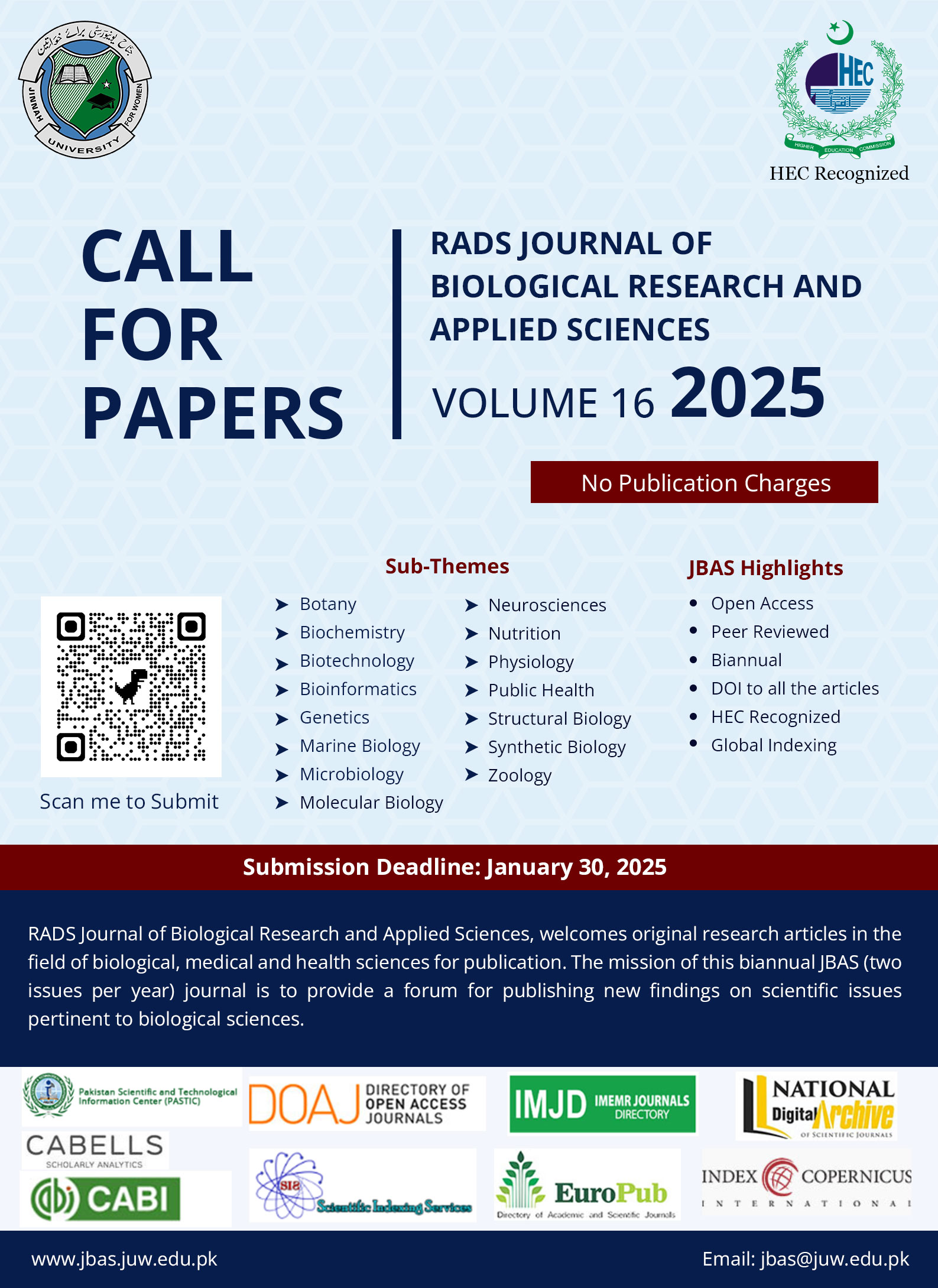Awareness of Ebola Virus Disease among the Medical and Non-medical Personnel in Lahore
DOI:
https://doi.org/10.37962/jbas.v13i1.426Keywords:
Awareness, Cross-sectional study, Ebola virus, Filoviridae, Medical personnel, Prevention.Abstract
Background: Ebola hemorrhagic fever, also called Ebola Virus Disease (EVD), is caused by a member of Filoviridae family known as Ebola Virus (EBOV). The incubation period of this virus is 2 to 21 days and initial symptoms may include fever, chills, headaches, muscle aches, and loss of appetite.
Objectives: The study was aimed to assess the effectiveness of awareness sessions about EVD among university population.
Methodology: A cross sectional study was carried out post awareness sessions at different universities of Lahore and data was compared with data of medical personnel.
Results: Our study indicated that 75% of university population have gained the knowledge about Ebola virus disease after the awareness session.
Conclusion: The present study concludes that awareness sessions about EVD are highly effective in spreading basic knowledge about the disease, therefore, it is recommended to use multidimensional approaches such as seminars, awareness campaigns, presentations and social media etc. to increase awareness of diseases so that the possible outbreak of this disease in Pakistan could be prevented.


















